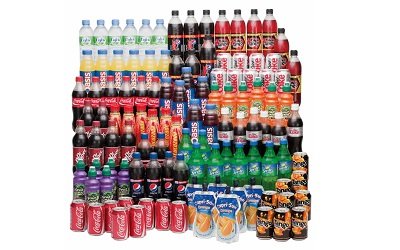Inside BENEO’s new pulse plant: pioneering sustainable protein from faba beans
A study published in Cancer Epidemiology, Biomarkers & Prevention shows that postmenopausal women who consumed sugar-sweetened beverages may be more likely to develop the most common type of endometrial cancer compared with women who did not drink sugar-sweetened beverages.
The researchers used data from 23,039 postmenopausal women who reported dietary intake, demographic information, and medical history in 1986, prior to the cancer diagnosis, as part of the Iowa Women’s Health Study. Dietary intake was assessed using the Harvard Food Frequency Questionnaire (FFQ), which asked study participants to report intake frequency of 127 food items in the previous 12 months. A typical portion size for each food item was provided to give study participants a sense of scale.
As reported in the study, the FFQ included four questions asking usual intake frequency of sugar-sweetened beverages, including 1) Coke, Pepsi, or other colas with sugar; 2) caffeine-free Coke, Pepsi, or other colas with sugar; 3) other carbonated beverages with sugar (e.g., 7-Up); and 4) Hawaiian Punch, lemonade, or other noncarbonated fruit drinks. “Sugar-free soft drinks” included low-calorie caffeinated and caffeine-free cola (e.g., Pepsi-Free), and other low-calorie carbonated beverages (e.g.,Fresca, Diet 7-Up, and Diet Ginger Ale). The researchers categorised the sugar-sweetened beverage consumption patterns of these women into quintiles, ranging from no intake (the lowest quintile) to between 1.7 and 60.5 servings a week (the highest quintile).
Between 1986 and 2010, 506 type I and 89 type II endometrial cancers were recorded among the women the researchers studied. They did not find any association between type I or type II endometrial cancers and consumption of sugar-free soft drinks, sweets/baked goods, and starch. However, postmenopausal women who reported the highest intake of sugar-sweetened beverages had a 78% increased risk for estrogen-dependent type I endometrial cancer (the most common type of this disease). This association was found in a dose-dependent manner: the more sugar-sweetened beverages a woman drank, the higher her risk.
Because this study is the first to show the association between high sugar-sweetened beverage consumption and endometrial cancer, such findings need replication in other studies, according to the researchers.
In response to the study, the American Beverage Association (ABA) released the following statement: “This study does not show that sugar-sweetened beverage consumption causes endometrial cancer. In fact, its findings conflict with the results of several other published studies that showed no association between consumption of sugar and risk for endometrial cancer. The Mayo Clinic states common risk factors as changes in female hormones, older age, obesity, and inherited genetic conditions—not sugar or beverage consumption. Moreover, the study only measured dietary behaviors at the very beginning of the study, yet makes conclusions about health outcomes over 12 years.”

